In a bid to tackle the devastating effects of air pollution in Africa, stakeholders are seeking improved partnerships to promote clean air, better health, and a sustainable environment.
This was disclosed at the pre-event session of the 5 day Clean Air Forum, which commenced today, Monday 8 July 2024 with two workshops, one devoted to a media training and the other, a policy impact session.
Policy Impact
Presenting his remarks at the opening ceremony, the General Manager of Lagos State Environmental Protection Agency (LASEPA), Dr Tunji Ajayi informed participants that it was extremely critical for stakeholders to create sustainable partnerships as the advocacy for Clean Air is a multi sector issue and concerns everybody.
Dr Ajayi, a medical practitioner turned environmental expert, incidentally a member of the organizing committee of the Clean Air forum, opined that “We need the expertise of researchers, the commitment of businesses, and the active participation of every Lagosian. This conference, therefore, is an opportunity to bridge that gap, to bring the business men to the table. We already have academia at the table.
“We’re also bringing policy makers to the table. Over the next couple of days, you’ll see policy makers across borders, from environment, to health, to even anti-Lagos”.
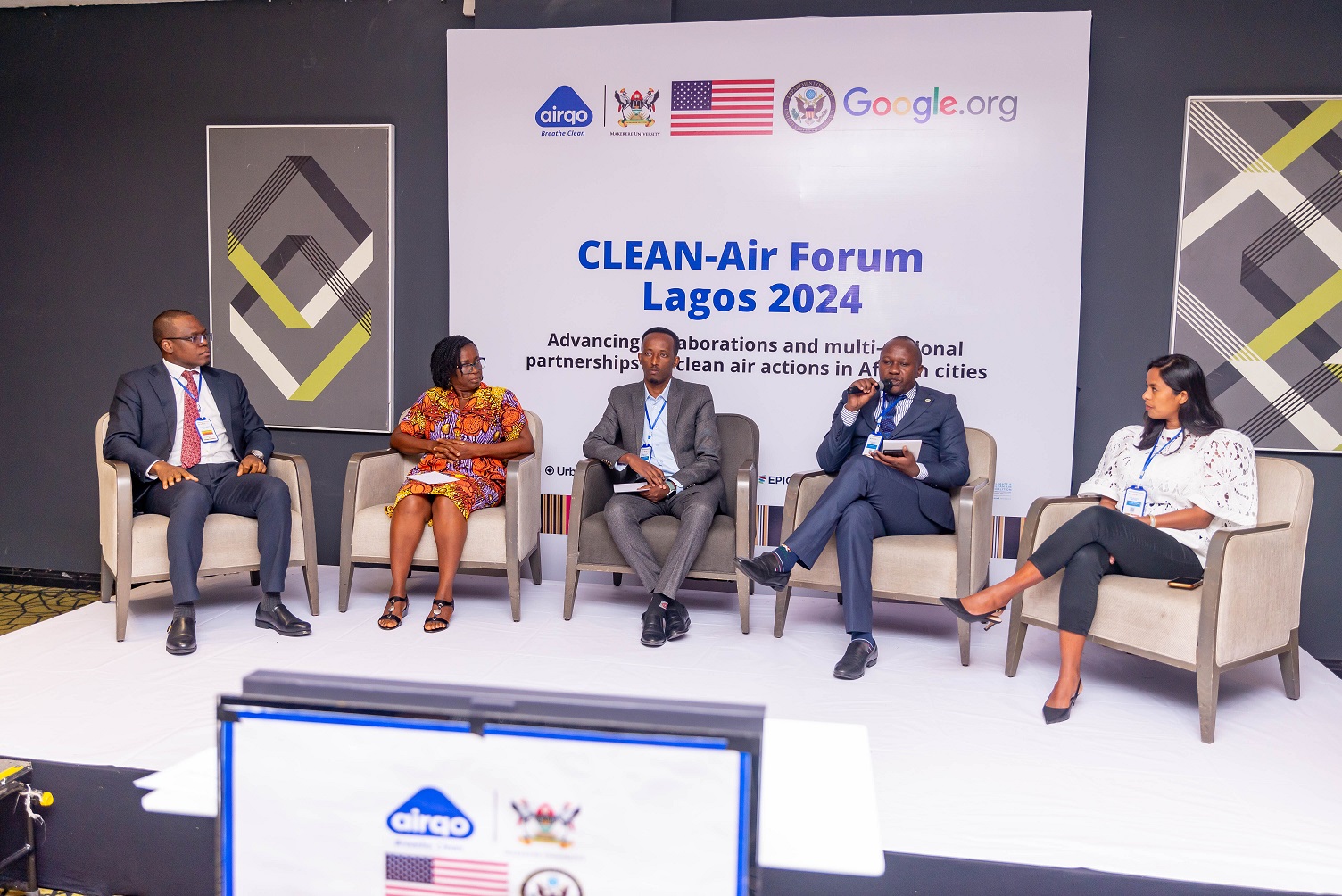
Role of Academia
Speaking on the role of the academia, Dr Ajayi noted “I am one of those people that believe strongly that you cannot change a city, or even push any agenda at all, without strong partnerships with academia. I also believe strongly that innovation starts from these universities, and because we have seen how much transformation that the strength of academia has brought into policy, we are very happy to take this forward.
“We are getting even more aware of our responsibilities to the environment, by implementing several initiatives, including the Eko Air Project, where we promote responsible waste management and reduce emissions.
“We are also actively working with stakeholders across different industries, from mining, to agriculture, to steel manufacturing, and the heavy polluters in our city.
“However, we know that we cannot achieve clean air alone, which is why we are excited to have this partnership with RECCO, the University of Lagos, and the University of Makerere”, he concluded.
Social Considerations
Dr. Bolajoko Malomo of the Department of Psychology, University of Lagos, underscored the critical importance of addressing air quality in Nigeria.
According to Dr Malomo, “Air pollution is a social issue that affects everyone, as we all breathe the same air,”
Citing a World Health Organization study, Malomo, a social researcher noted, that approximately 4.2 million people die prematurely each year from air pollution-related diseases.
Dr. Malomo emphasized that human activities, such as industrial emissions, vehicle pollution, and waste burning, significantly degrade air quality. To combat this, she stressed the need for targeted interventions and public awareness campaigns to engage communities and protect the air we share.
Collaborations
Speaking on his expectations for the forum, Mr Rajagopal Subramanian, lead of the air quality team at the Center for Study of Science, Technology, and Policy (C-Step) in Bangalore, India, stated that “India and Nigeria have very similar environments. This is quite exciting for me as it gives me an opportunity to explore the solutions Nigeria has instituted and for both countries to work together to proffer solutions for cleaner air.
“This forum also gives me an opportunity to meet with Nigerian researchers such as Prof. Rose Alani, whom i worked with in deploying some air quality monitors in Nigeria; AirQo, organizers of this forum, and to ensure better engagement and discuss further research that can be done”, says R. Subramanian, also called Subu, who incidentally is the founder of the Africa Quality Direct Network.
Unfortunately, says Subu, “While both Nigeria and India have had quality data, a lot of action is not being taken to reduce emissions, whether it is from fossil fuel burning, which creates a lot of black carbon and other air pollutants that cause both air pollution and climate problems”.
Capacity Building
The role of journalists in ensuring increased attention and understanding of the what Clean Air is, the factors that affect it and how it impacts on society i extremely crucial. This was emphasized at an interactive media training which held alongside the opening ceremony.
Prof. Melina Platas, from the New York University, Abu Dhabi, emphasized that conversation around air pollution is very important, there is need for Air Quality Management and Reporting, to bring adequate information to the audience, relate critical issues and how it can be effectively addressed.
The training, coined the Journalist-Scientist dialogue sought ways of helping journalists and scientists find common ground towards distilling scientific information to targeted public in ways that would ensure their understanding and impact. This was bolstered by Prof. Melina Platas of New York University, Abu Dhabi, who reiterated that there is need for enhanced focus on Air Quality Management through effective reporting and increased access to research information and the scientists themselves.
Multiple award winning journalist, Dr Jackline ‘Jackie’ Lidubwi, lead trainer, enjoined journalists to think outside the box and focus on new ways of telling stories about Air Quality. Alongside other trainers, Jackie, a project coordinator with Internews / Earth Journalism Network, insisted on journalists using actionable data and targeted considerations for effective impact and to drive increased engagement.
The training, which was initiated by AirQo and the Clean Air Catalyst, sought to equip media personnel with the tools and skills to disseminate the right information at the most appropriate time using the best format, and aligned to a specific audience for major impact. The conversations reiterated the need for journalists and scientists to find common ground towards distilling scientific information to targeted audience in ways that would ensure understanding and impact.
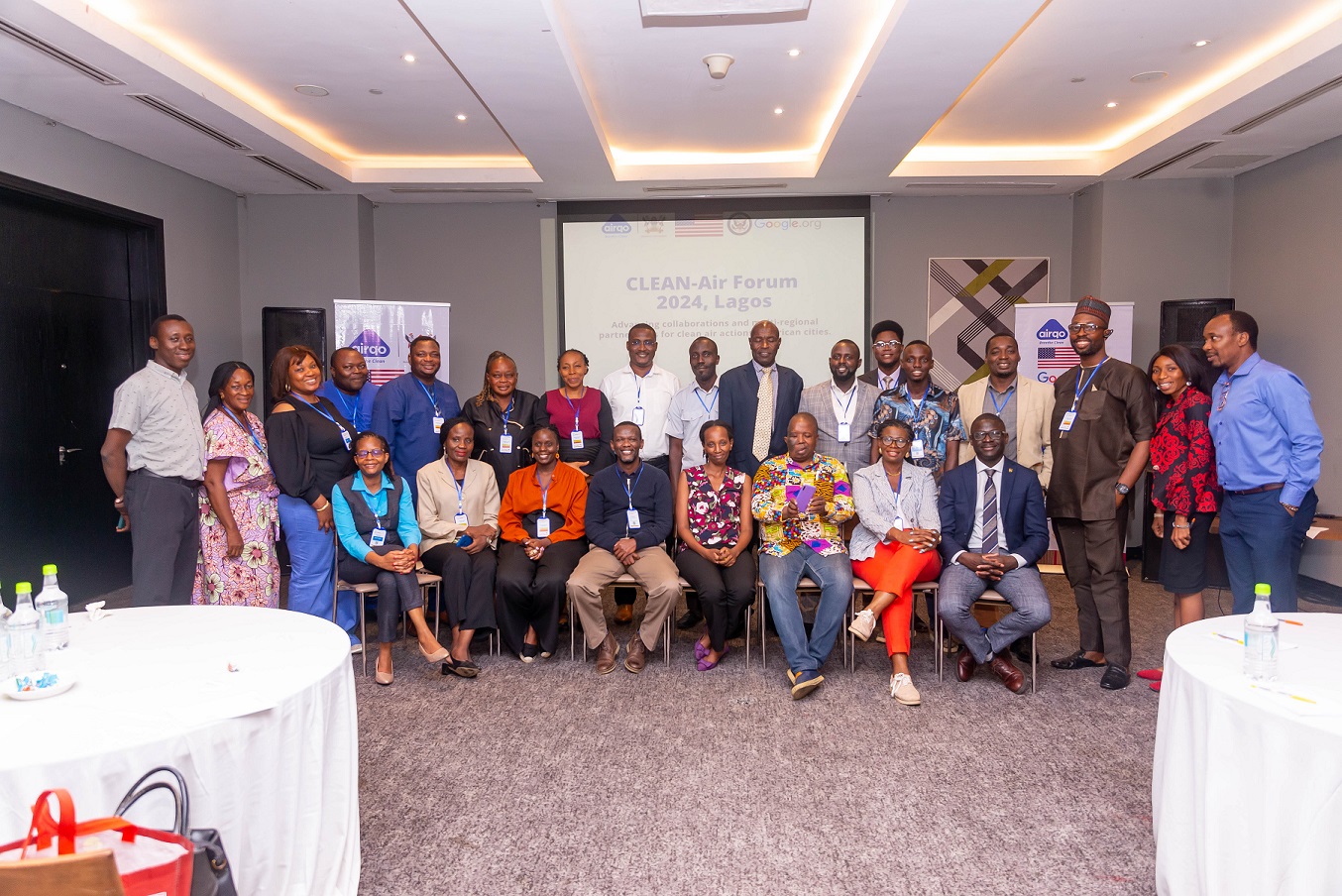
The 2024 Clean Air Forum is convened by a coalition of stakeholders, coordinated by the Evidence Use in Environmental Policymaking in Nigeria (EUEPiN) from the University of Lagos and the World Resources Institute.
The theme “Advancing collaborations and multi-regional partnerships for clean air actions in African Cities”, according to the conveners, was carefully curated to bring together communities of practice in Africa to promote knowledge sharing, collaborations and multi-regional partnerships while particularly emphasizing the need to strengthen regional networks for sustained interventions.
Indeed, the quest for clean air in Africa has continued to gain momentum, with stakeholders uniting to tackle the scourge of air pollution. Through enhanced partnerships and initiatives, the continent is poised to witness improved air quality, better health, and a sustainable environment. The Clean Air forum, in its second iteration, once again provides the opportunity to re-affirm the needed collaborations to ensure better air quality in Africa.



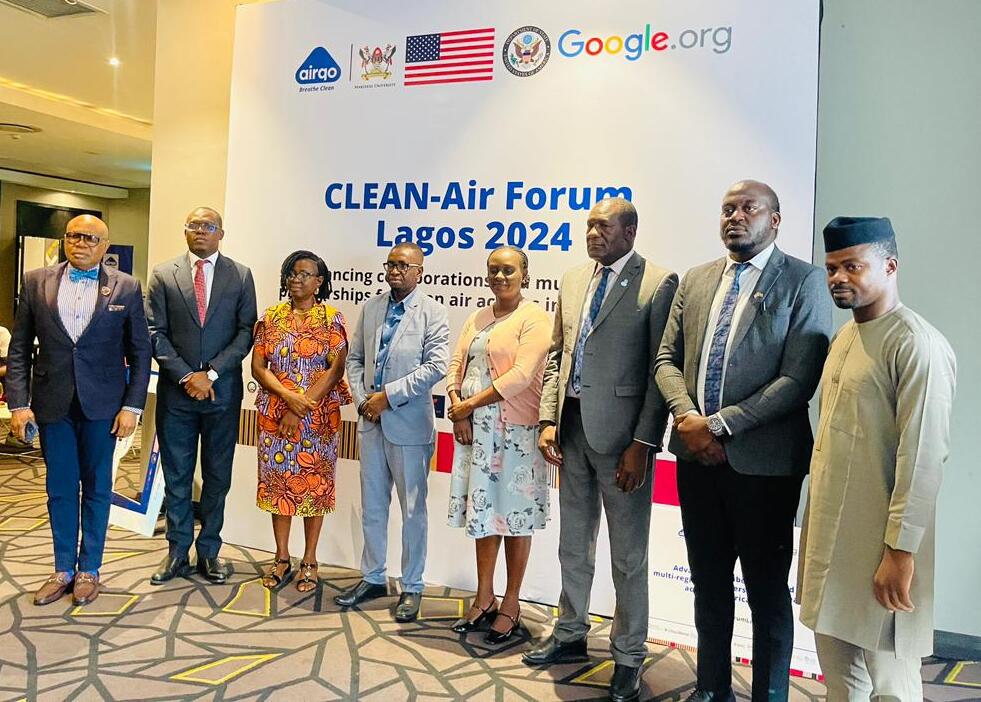
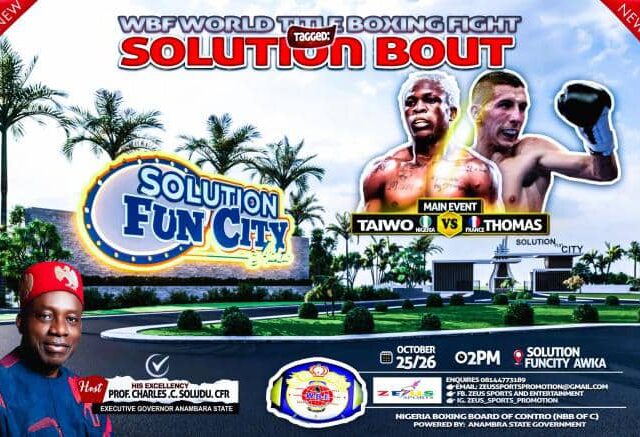
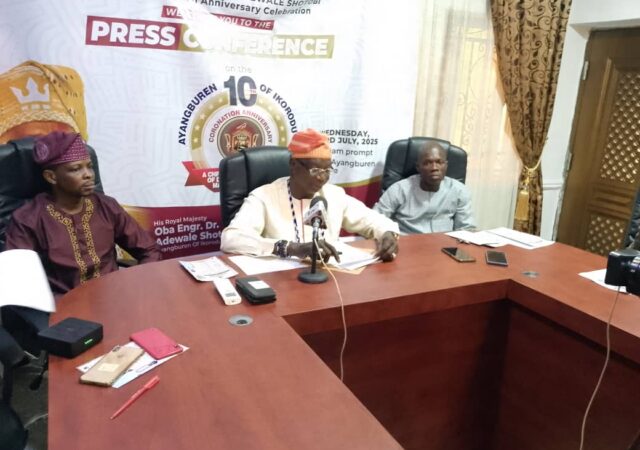


the idea beach towel should be colored white because it reflects heat away-